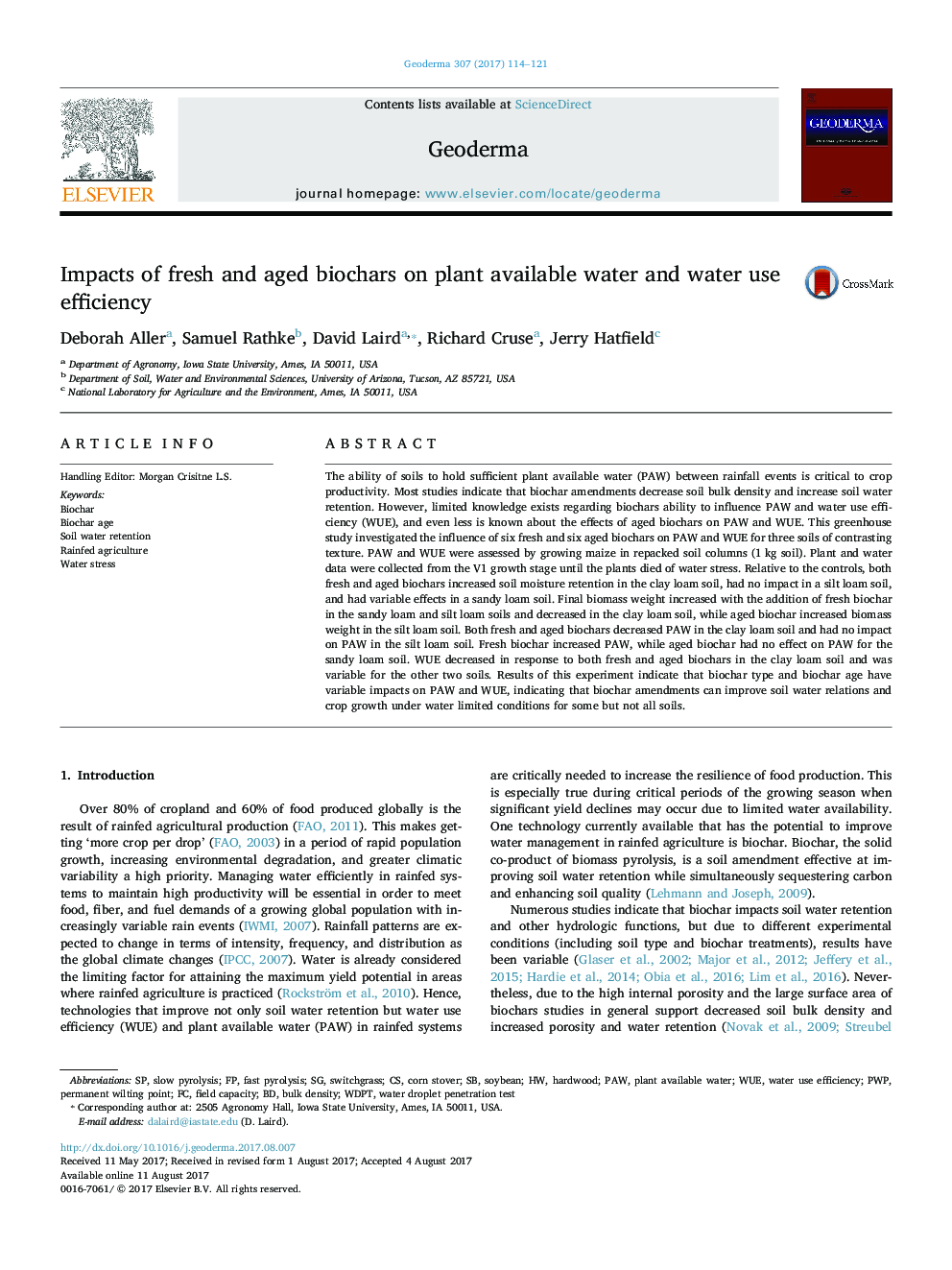| کد مقاله | کد نشریه | سال انتشار | مقاله انگلیسی | نسخه تمام متن |
|---|---|---|---|---|
| 5770236 | 1629410 | 2017 | 8 صفحه PDF | دانلود رایگان |
- Different biochars have different impacts on soil water relations.
- Addition of fresh but not aged biochar to sandy loam soil increased PAW.
- Addition of fresh and aged biochar to silt loam soil had no effect on PAW and WUE.
- Addition of biochar to clay loam soil increased drainage and decreased PAW.
- Biochar can improve water management in rainfed agriculture if used strategically.
The ability of soils to hold sufficient plant available water (PAW) between rainfall events is critical to crop productivity. Most studies indicate that biochar amendments decrease soil bulk density and increase soil water retention. However, limited knowledge exists regarding biochars ability to influence PAW and water use efficiency (WUE), and even less is known about the effects of aged biochars on PAW and WUE. This greenhouse study investigated the influence of six fresh and six aged biochars on PAW and WUE for three soils of contrasting texture. PAW and WUE were assessed by growing maize in repacked soil columns (1Â kg soil). Plant and water data were collected from the V1 growth stage until the plants died of water stress. Relative to the controls, both fresh and aged biochars increased soil moisture retention in the clay loam soil, had no impact in a silt loam soil, and had variable effects in a sandy loam soil. Final biomass weight increased with the addition of fresh biochar in the sandy loam and silt loam soils and decreased in the clay loam soil, while aged biochar increased biomass weight in the silt loam soil. Both fresh and aged biochars decreased PAW in the clay loam soil and had no impact on PAW in the silt loam soil. Fresh biochar increased PAW, while aged biochar had no effect on PAW for the sandy loam soil. WUE decreased in response to both fresh and aged biochars in the clay loam soil and was variable for the other two soils. Results of this experiment indicate that biochar type and biochar age have variable impacts on PAW and WUE, indicating that biochar amendments can improve soil water relations and crop growth under water limited conditions for some but not all soils.
Journal: Geoderma - Volume 307, 1 December 2017, Pages 114-121
